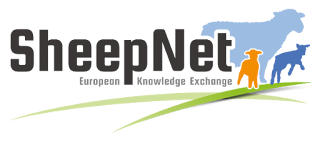
The International Society for Applied Ethology held its 53rd
annual Congress in Bergen, Norway at the beginning of August. The Society has
been promoting the use of animal behaviour in animal management for more than
50 years, since its beginnings in Edinburgh (as the Society of Veterinary
Ethology), and has grown to become the most important annual congress for those
interested in animal behaviour and welfare. The society has also been keen to
expand its activities into new regions to support animal welfare activities in
Asia, South America and Africa and, through the generous support of the Open
Philanthropy Project, was able to bring 14 fellows to the Conference from a
diverse range of countries including Sudan, Nigeria, India, Sri Lanka,
Bangladesh, China, Tai-Wan and Colombia. As part of the activities for these
participants, JMICAWE Director, Cathy Dwyer, along with fellow ISAE members: Dr
Jeremy Marchant-Forde (USDA, USA), Prof Dan Weary (UBC, Canada) and Dr Laura
Boyle (Teagasc, Ireland), together with ISAE Development Officer, Rebecca
Sommerville (Dog’s Trust, UK), hosted a workshop before the conference began to
provide the new members with essential skills in behaviour and welfare.
‘The participants were
extremely enthusiastic and dedicated to learning about animal behaviour and
animal welfare’ said Cathy, ‘and it
was wonderful to help them work on animal welfare skills to take back to their
own countries after the Congress’.
The Congress itself began with a wonderful Wood-Gush
memorial lecture (held each Congress in memory of Prof David Wood-Gush,
University of Edinburgh), given by Prof Emeritus Felicity Huntingford. This
covered the application of fundamental biology of fish behaviour to practical
and applied problems to improve fish welfare, an important and emerging area of
interest. The conference covered a range of important and inspiring areas:
social behaviour, behaviour and genetics, environmental enrichment,
human-animal interactions and future trends in animal production, among other
topics. Overall it was good to see more than 400 people contributing to
different areas and problems, but all with the aim of using science to improve
animal lives.

The Congress ended with poster and travel awards, and
honouring those Society members who had achieved particular awards. And the
all-important handing on of the batten (or in this case the wooden ISAE logo
carved by JMICAWE associate, Mike Appleby) to the next Congress
organisers. Excitingly, this will be in
India for the first time, and JMICAWE will be involved in the helping with the
organisation of the Scientific Programme, with an Asian flavour. Watch this
space for further updates on the Congress development!
 Former Director of the JMICAWE, Prof Nat
Waran was invited to present on One Welfare at the recent OIE (World Animal
Health) Regional Animal Welfare meeting in Bali, hosted by the Indonesian
Government. The meeting attended by more than 25 National Animal Welfare Focal
Point representatives from across a very large region was a great opportunity
to provide information about the importance of linking improved animal welfare
with positive human health and welfare outcomes using examples drawn from the
work carried out by the JMICAWE and partners in different parts of the world. Discussions
on the development and implementation of the OIE animal welfare codes and
standards as well as support for the development of in-country animal welfare
strategies took place over a three day period, and the complexity of driving
forward changes to improve animal welfare across the region was made obvious to
all.
Former Director of the JMICAWE, Prof Nat
Waran was invited to present on One Welfare at the recent OIE (World Animal
Health) Regional Animal Welfare meeting in Bali, hosted by the Indonesian
Government. The meeting attended by more than 25 National Animal Welfare Focal
Point representatives from across a very large region was a great opportunity
to provide information about the importance of linking improved animal welfare
with positive human health and welfare outcomes using examples drawn from the
work carried out by the JMICAWE and partners in different parts of the world. Discussions
on the development and implementation of the OIE animal welfare codes and
standards as well as support for the development of in-country animal welfare
strategies took place over a three day period, and the complexity of driving
forward changes to improve animal welfare across the region was made obvious to
all. 


















